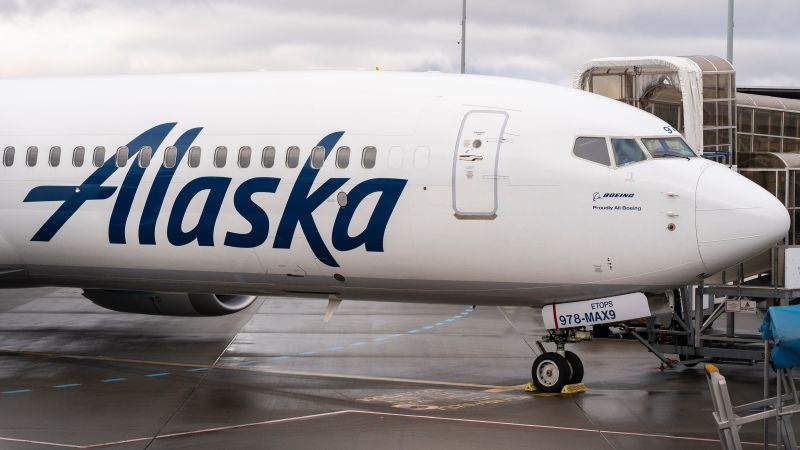Alaska Airlines and United Airlines, both major US operators of the Boeing 737 Max 9, cancelled a combined 342 flights Monday as the grounding of the aircraft continues to majorly disrupt their schedules.
FlightAware, an airline tracking service, said 138 Alaska flights were cancelled Monday, amounting to 20% of its schedule. The cancellations come after the 737 Max 9 grounding weighed heavily on the airline’s operation on Sunday, with about 170 flights cancelled, according to an Alaska Air statement.
Alaska Airlines, which has 65 737 Max 9 aircraft in its fleet, said it can’t return the planes to service until the US Federal Aviation Administration provides details about how to inspect the planes.
“While we await the airworthiness directive inspection criteria from the FAA and Boeing, our maintenance teams are prepared and ready to perform the required inspections,” the airline said in a statement.
Alaska also said that “cancellations will continue through the first half of the week, and we encourage guests with travel plans to continue to check their email and alaskaair.com for updates.”
United Airlines, another US operator of the 737 Max 9 aircraft, also had a large disruption on Monday, with 204 flights cancelled, or about 7% of its schedule.
United has 79 Boeing 737 Max 9 aircraft in its fleet, with the grounding of the aircraft causing 60 cancellations Sunday. Travelers also had to contend with winter weather over the weekend that disrupted air travel.
The FAA forced all 737 Max 9 aircraft grounded after an Alaska flight made an emergency landing Friday when a panel and window blew out mid-flight. A federal investigation has been launched.
The FAA said its grounding directive will impact 171 planes around the world. Even though some of the affected airlines’ fleets comprise hundreds of planes, temporary flight suspensions can still put strain on travelers as operators scramble to fix scheduling issues.
Rescheduling depends on a variety of factors. Airlines with larger fleets will generally have an easier time shuffling aircraft around to meet customer demand. Airlines with smaller fleets and airlines relying more heavily on the affected planes could find it more difficult. Location can also play a role. Airports capable of supporting a larger number of aircraft are more likely to have spare planes to replace the grounded ones.
CNN’s Paradise Afshar and Eva Rothenberg contributed to this report.
Read the full article here




